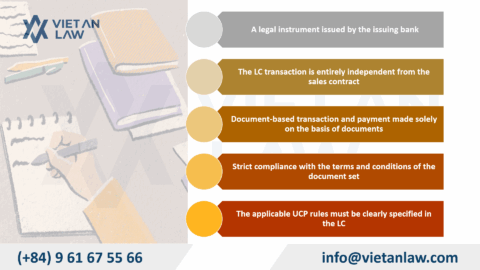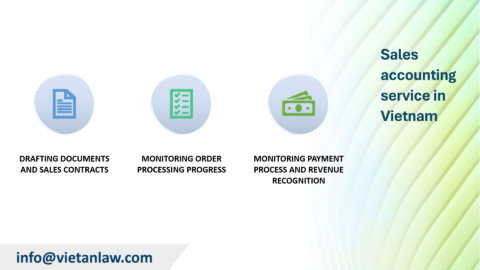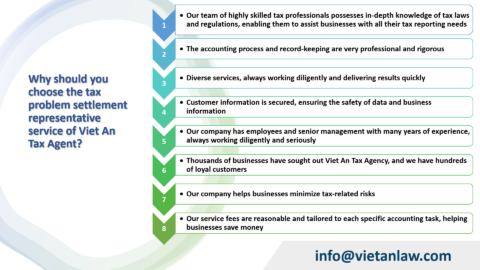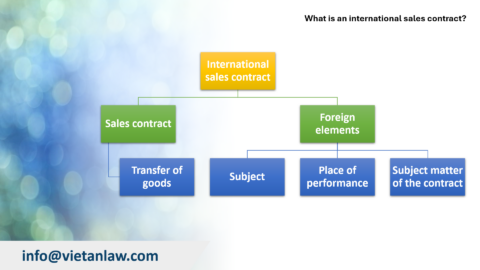For a long time, contract law has occupied a very important position in the Vietnamese legal system, because almost all transactions in society, whether for business purposes or to meet daily needs, are related to contracts. For that reason, regulations on contracts and contract-related issues in the 2015 Civil Code occupy a core position with more than 300 articles out of a total of 689 articles. The purpose of contract law is to protect the free will of the parties. This freedom of will is limited only by certain exceptions to protect public order or to ensure the legitimate rights of third parties.
Vietnam’s contract law is currently regulated in many different legal documents such as the Civil Code, Commercial Law, and Insurance Business Law…, however, the Civil Code is considered the original law regulating general contractual issues and contractual relationships, which is the basis of contract law based on the principles of equality, party autonomy, self-agreement, and self-responsibility.
The provisions on contracts in the Civil Code apply generally to all types of contracts, regardless of whether civil contracts or economic contracts, contracts with business purposes, or contracts to meet daily demand. Based on the general provisions on contracts of the Civil Code. Depending on the specific nature of relationships or transactions, specialized laws may have their regulations on contracts to regulate specific contractual relationships, for example, the provisions on goods sale contracts in Commercial Law, and insurance contracts in the Insurance Business Law… The provisions on contracts in the Civil Code are considered general regulations, while contract regulations in specialized laws are considered specialized regulations and these regulations are given priority.
Vietnam’s current contract law, although there are certain limitations that lawmakers continue to amend and supplement to keep up with social reality, is generally considered quite progressive and appropriate consistent with the socio-economic development trend in the current period. After many times of amending and supplementing contract regulations, it has partly grasped and institutionalized the state’s guidelines and policies on socio-economic development, concretizing economic rights, Citizens’ civil rights are recognized in the Constitution 2013 and meet the requirements in the process of international economic integration. The regulations on entering into and implementing contracts have expressed the view of enhancing freedom of contract through the parties’ full right to decide on the partner participating in signing the contract, the form of the contract, and the content of the contract and the responsibilities of the parties in case of violation.
The Civil Code regulates general contract issues such as contract concept, contract conclusion, contract performance, and contract termination… while specialized laws only regulate specific issues. of contracts in different fields. Within the scope of this study, the author only mentions issues related to common errors in the process of participating, negotiating, and signing contracts of businesses, especially in some common types of contracts.
In principle, the parties have the freedom to decide the form of the contract. The form of the contract can be expressed verbally, in writing, or by specific acts, except in some cases where the law requires the contract to be expressed in a certain form to ensure public order. For example, a contract to transfer land use rights must be in writing and notarized.
Businesses need to know that, in order to comply with the strong development trend of information technology and the application of information technology in all areas of social life, the law also recognizes the form of contracts with can be expressed through electronic means in the form of data messages and this form is considered a written contract.
In cases where the law requires a contract to be expressed in notarized or authenticated writing, registered or licensed, those regulations must be complied with. For example, contracts for buying and selling land use rights, real estate such as apartments, and purchasing and selling vehicles such as cars, ships, etc. must all be made in writing and must be notarized (in case of buying and selling vehicles, cars and ships but the seller does not issue a VAT invoice). Many cases of buying and selling land use rights and assets require notarization… but without notarization, when another transaction is established in parallel with this transaction, the notarized transaction must be protected according to the provisions of law.
The Civil Code determines the effective date of a contract on the basis of recognizing the validity of the parties’ commitments and agreements, regardless of the form of the contract. Therefore, in principle, the contract is concluded at the time the offeror receives a response from the offeree accepting the contract. The contract is also considered to be concluded when the time limit for replying expires if the parties have an agreement of silence as a response to accepting the contract. Based on the form of the contract, the law also stipulates specifically for each case, for example, for contracts concluded verbally, the time of conclusion of the contract is the time the parties have agreed upon the content of the contract. For contracts concluded in writing, the time of conclusion of the contract is the time the last party signs the document.
In principle, the effective date of a contract is calculated from the time of conclusion, however, businesses need to know that there are still exceptions when the parties have other agreements, for example, the contract is signed by the parties on January 1, 2022, but the parties agree that the contract is considered signed on February 1, 2022, or when the law has other provisions, for example, according to land law, the effective date of a mortgage contract is the time of registration real estate, not the time the parties sign the contract and notarize it. In fact, many businesses do not clearly know this regulation and for some reason do not register, so the legal risk is huge.
The issue of authorization to sign contracts is not specifically regulated by the Civil Code, however, because contracts are a form of civil transaction, regulations on authorization to establish and execute can be applied currently in civil transactions. Accordingly, individuals and legal representatives of legal entities can authorize others to establish and perform contracts according to the representative regime.
According to current regulations, the statute of limitations for filing a lawsuit to request a court to resolve a contract dispute is two years from the date the legitimate rights and interests of individuals, legal entities, and other entities are violated. For example, A and B signed a goods purchase contract on January 1, 2020, then a dispute occurred, and A rights were violated on March 1, 2020. A can only sue the court to resolve since his rights were violated, from March 1, 2020, to March 1, 2022 (2 years from the date his rights were violated). In fact, many businesses in their business activities often do not know about this regulation, which leads to the expiration of the time limit for filing a lawsuit. When they file a lawsuit to the Court to return the lawsuit, it is too late to find out after the lawsuit deadline has expired.
Compared to domestic commercial contracts, negotiating to conclude international commercial contracts is essentially negotiating with foreign businesses. Vietnamese businesses often encounter the following problems:
Negotiations on international trade contracts are conducted in many different languages such as English, French, Japanese, and Chinese… depending on which language the contracting partner uses. Therefore, to be able to negotiate international trade contracts successfully, Vietnamese businesses must have language experts.
Nowadays, English is a widely used language in communication as well as in contract negotiation. Therefore, proficient in English will be a strength of businesses that want to operate and develop in the international market and in negotiating international trade contracts as well. Proficient in using foreign languages in negotiating international trade contracts will help Vietnamese businesses not only be confident, proactive, and independent in negotiations but also save costs (for example, the cost of hiring interpreters, translating documents related to the contract,…), keeping professional secrets, creating respect from partners,… and especially avoiding errors in the substantial contractual agreement due to misunderstanding the will of partners.
The art of negotiation is reflected in the good preparation of negotiation options to easily deal with all requirements of the other side. Subjectivity and carelessness will put businesses in a passive position. In such a case, it will be difficult to get commercial contracts that benefit you.
The art of negotiating with foreign partners requires Vietnamese businesses to have an understanding of the customs, practices, and habits of the partner origin country as well as its environment. Understanding the business practices of the partner country will enable Vietnamese businesses to easily share many problems in negotiations, thereby facilitating negotiations on each specific clause in the contract.
The art of negotiation also requires Vietnamese businesses to have both determination and concessions with foreign customers when negotiating each specific clause in the contract.
To save time, it is extremely necessary to research foreign laws in advance, especially the laws of the partner’s country as well as international laws or customs. This understanding will minimize disagreements and save negotiation time.
This requires negotiators to have a good and profound understanding of the international trade profession. In other words, those who negotiate to sign international trade contracts must be professionals in the specific field of international trade they are preparing to negotiate. For example, negotiating to sign an international trade contract where the object of sale is complex equipment such as aircraft, television broadcasting towers, etc. will be completely different from purchasing rice, coal, or steel. Contracts for transporting import and export goods by sea will also have different technical criteria than technology transfer contracts related to operating an oil refinery.
Above is some advice from Viet An Law on some keynotes when negotiating and drafting contracts. In order to minimize the legal risks of the contract, if you need to draft a contract, please contact Viet An Law for the best support.




